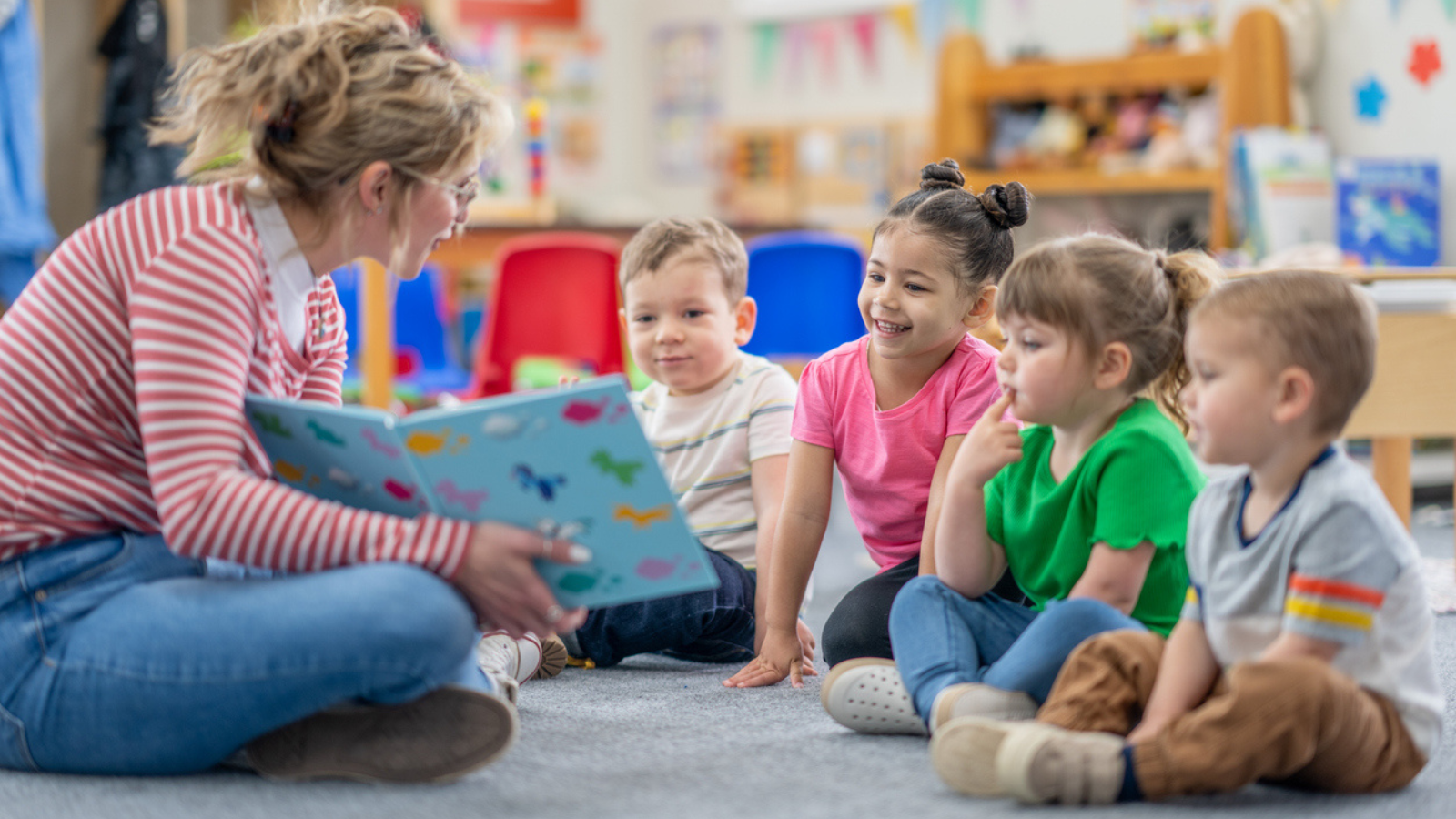Creating a rich and stimulating reading environment that instils a love of books amongst children.

Quick links:
Information about the setting
The rural, pack away setting in Trellech, established in 1973, has been co-managed by the current leaders since 2020. They are experienced educators leading a team with a strong commitment to early childhood learning and development.
Context and background to the effective or innovative practice
The setting’s journey towards developing reading stemmed from the practitioners’ personal passion for books, a belief in the transformative power of early literacy and observations of the children’s natural curiosity towards storytelling and books. This led to a conscious decision to create a nurturing environment, with a love of reading as a cornerstone to the setting’s ethos.
Description of nature of strategy or activity
What impact has this work had on provision and children’s standards?
Through its approach, the setting has observed a considerable impact on children’s development:
Language Acquisition and Imagination:
Practitioners have noticed children using words and phrases from books in their everyday conversations, demonstrating an expanded vocabulary and a deeper understanding of storytelling concepts. Through reading nature books, the children have learnt new words, which they use when talking about their first-hand experience with others.
Incorporation of Story Ideas into Play:
The children’s engagement with books has inspired them to incorporate the characters or events from stories into their imaginative play, by themselves or with others. This integration of story elements encourages empathy, co-operation, and critical thinking as they explore different perspectives and scenarios.
Promoting Diversity and Inclusivity:
The setting’s diverse range of books has facilitated conversations on diversity, inclusion, and cultural awareness among the children. Books representing all families and cultures have sparked curiosity, empathy and respect for everyone. The children talk to the adults about the pictures and people in the books. This has helped everyone to feel that they belong and promoted inclusivity within the setting’s community.
Parental engagement:
Children’s engagement with books has increased parents’ participation in shared reading activities. By encouraging children to take books home, practitioners have noticed increased parental involvement. Parents have expressed enthusiasm for reading with their children, sharing a love for books outside of the setting. Parents have shared with the setting that they have talked to their children about different cultures and nature through the stories their children bring home, leading to enriched discussion and shared learning experiences within the family.
Exploration of Nature and the World Around Them:
Through nature-themed books, children have developed a greater appreciation for the environment, showing curiosity and wonder about the natural world. Their engagement with these books has inspired them to ask questions, make connections and explore the outdoors with a newfound sense of curiosity and awareness. By using books to complement children’s own first-hand experiences the setting has helped them to have an increasing breadth and depth of knowledge about the world around them.
Transferring of Knowledge
Engaging with books has nurtured children’s literacy skills but also helped them to make connections and transfer their learning into all areas of their play and learning. Within the examples above, it is evident that, through stories and non-fiction books, children make connections between the content of the books they read and real-life experiences and their imaginative and symbolic play.
The impact of promoting a love of books in the setting has been transformative, developing children’s communication, language and literacy skills, imaginative play and fostering a deeper understanding of diversity, inclusivity and the natural world. By providing a rich literary environment, practitioners have observed the power of books in nurturing children’s creativity, empathy and curiosity, supporting their holistic development.
How have you shared your good practice?
Practitioners attend termly non-maintained setting network meetings, discussing and sharing practice with other settings across the region. Photos and examples from the setting’s practice have been included within regional courses.